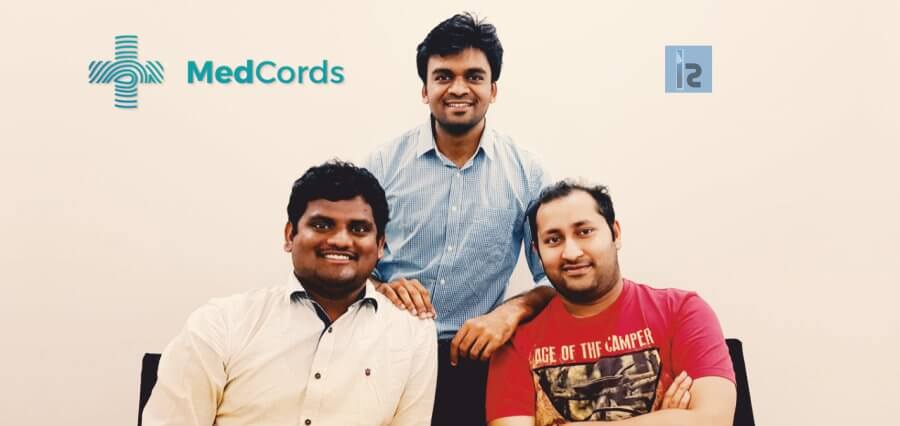BUSINESS
Nikhil Baheti, Shreyans Mehta, and Saida Dhanavath: Revolutionizing Rural Healthcare with MedCords

In the vast landscape of India, where healthcare accessibility is often a challenge, three entrepreneurs—Nikhil Baheti, Shreyans Mehta, and Saida Dhanavath—have embarked on a mission to transform rural healthcare through their start-up, MedCords. Founded in 2017, MedCords is a cloud-based health management platform that aims to bridge the gap in healthcare services for rural and semi-urban India.
The genesis of MedCords can be traced back to a personal experience that co-founder Shreyans Mehta had when his father suffered from a slipped disc in 2014. Unable to go to a hospital, Mehta arranged a video consultation, sparking his realization of the potential of technology in addressing healthcare challenges, especially in rural areas. This realization led him to explore the healthcare landscape in villages of Rajasthan, Uttar Pradesh, Bihar, and Madhya Pradesh.
Identifying issues such as the lack of access to qualified doctors and the reliance on local quacks, Mehta envisioned a comprehensive solution. In 2017, along with co-founders Nikhil Baheti and Saida Dhanavath, he launched MedCords to provide an end-to-end ecosystem for healthcare, from consultations to medications.
MedCords stands out in the health tech space by focusing on rural and semi-urban India. The platform addresses key challenges such as ignorance, lack of education, and low accessibility to medical services in these areas. The start-up has created a connected ecosystem involving patients, doctors, and pharmacies, with a mission to make consultations timely, easy, and cost-effective.
The platform boasts a network of about 25,000 pharmacies across 650 towns and cities in 13 states, predominantly in North and Central India. Additionally, it has onboarded close to 5,000 doctors and specialists. MedCords follows a hyperlocal model for medicine delivery, ensuring that medications reach customers within approximately 60 minutes. The platform’s unique approach has garnered over 3.5 million users, reflecting its significant impact on healthcare delivery.
Trust emerges as a critical factor and a significant challenge for health tech start-ups operating in rural India. MedCords recognizes that gaining the trust of the community is essential for its long-term success. To build this trust, the start-up places local pharmacists at the centre of its business model. These pharmacists act as ambassadors, facilitating awareness about the platform within their communities.
Through the Sehat Sathi app, designed by MedCords, pharmacists can on-board individuals who may not be tech-savvy or lack access to smartphones. The platform empowers these pharmacists to assist in booking appointments, creating digital health records, arranging consultations, and delivering medicines. This hands-on approach not only strengthens the trust between the platform and users but also contributes to brand recognition and value.
While addressing the healthcare needs of rural India, MedCords has devised multiple revenue channels. The founders emphasize that as trust grows, the platform can expand its offerings to include alternate medicines, nutrition products, and wellness items. Currently, MedCords generates revenue through consultation charges and subscription plans.
Consultation charges are kept affordable, with the first consultation priced at ₹99 and subsequent requests at ₹125. The platform also offers annual family plans, catering to different consult needs. The revenue for FY21 stood at ₹97 lakh, showcasing steady growth from ₹41 lakh in FY20 and ₹7.8 lakh in FY19. MedCords is on track to achieve an estimated revenue of ₹3 crore in FY22.
Looking ahead, MedCords has set ambitious targets for the next three years. The start-up aims to add 2 crore users and 1 lakh medical stores to its network, with a goal of facilitating more than 20 lakh consultations annually. The founders envision increasing revenue to ₹65 crore by strategically addressing the healthcare needs of rural and semi-urban India.
